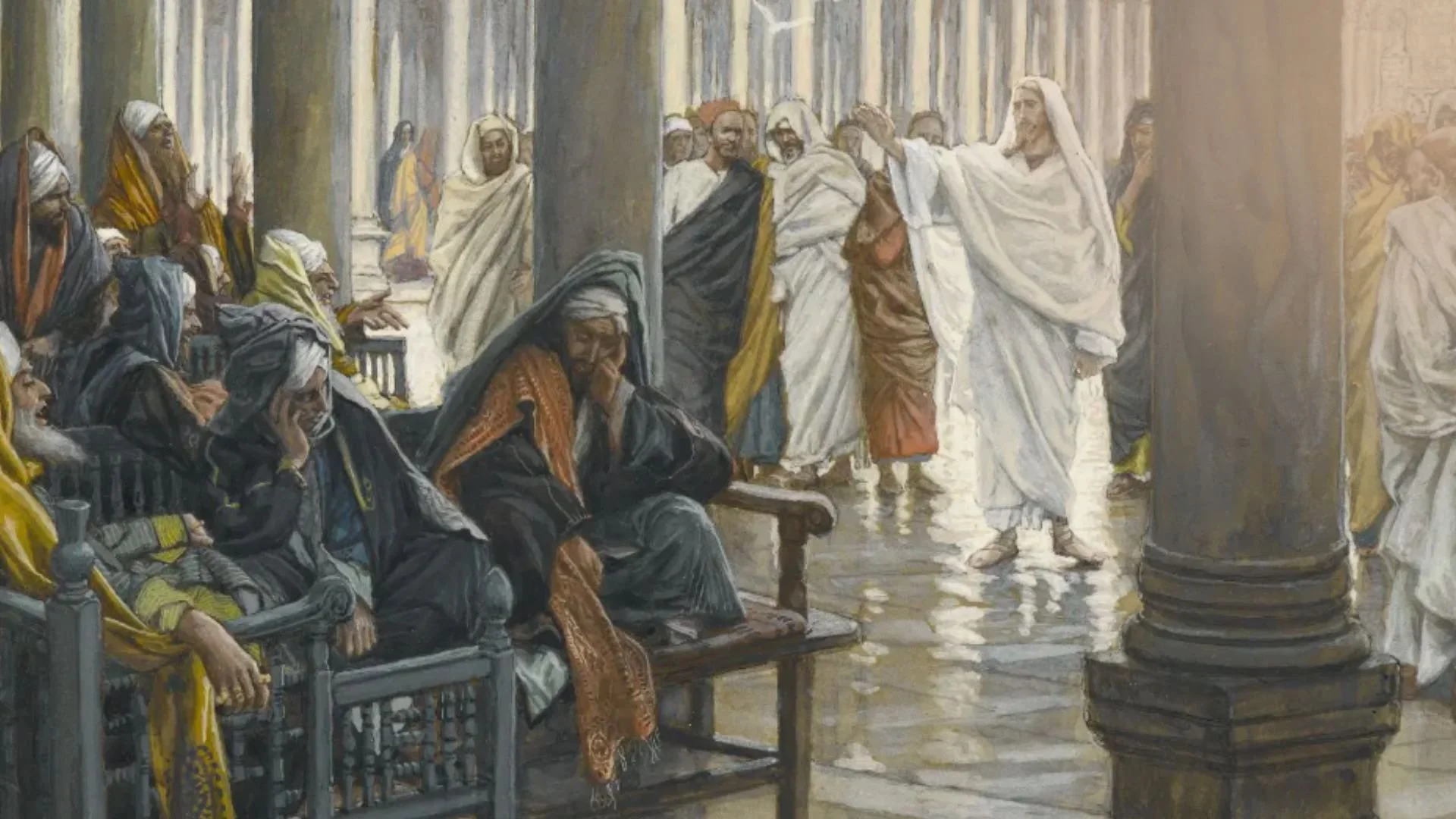Jesus' Question
“Since David called the Messiah ‘Lord,’ how can the Messiah be his son?” – Luke 20:44
As we step back and take Luke 20 in a wide-angle lens, it becomes peculiar that of all the questions Jesus could pose, of all the Scriptures He could choose, He choose the question of Luke 20:44 and Psalm 110:1. There are so many other passages- and in Luke 24 Jesus unfolds not just a few of them to His followers but, here, to a Temple full of people eager to listen, He asks about Psalm 110. It is no wonder the Apostles went again and again to Psalm 110 in writing about Jesus after His ascension (for a sampling, see Acts 2:34-35, 1 Corinthians 15:25, Hebrews 1:13, 5:6, 7:17, 18, 21, 12:2). Jesus started the Bible study with His question about it and His followers dug deep into the text.
Prior to Jesus’ fulfillment of the text of the ancient poem, it held much angst for the people of God. None of David’s sons measured up. None of them fit the amazing word-pictures. None of them was able to do what the promised Son of David was to do. Their enemies triumphed over them. Their attempts at ministry in the Temple were doomed. They couldn’t meet the expectations of the people they ruled or that the poem promised. Until Jesus. Then, in His life, death, resurrection and ascension, the waiting came to an end. Here was One who fulfilled the promises. Here was One who ruled in the midst of His enemies. Here was One who’s priesthood was eternal. Here is One who has willing followers, ready to go to battle for Him. Here is One who will rule and reign unrivaled and undefeated, His Kingdom eternally and irrevocably established by God.
In terms of application, it seems best to leave you with a long quote from a classic work on another Psalm of David- Psalm 23. W. Phillip Keller was a shepherd before he wrote on the ‘Shepherd’s Song’ and as a result his approach is different than most commentators. For our purposes, his opening lines of chapter 1 will do:
“The Lord! But who is the Lord? What is His character? Does He have adequate credentials to be my Shepherd- my manager- my owner?
And if He does, how do I come under His control? In what way do I become the object of His concern and diligent care?
These are penetrating, searching questions, and they deserve honest and basic examination.
One of the calamities of Christianity is our tendency to talk in ambiguous generalities.
David, the author of the poem, himself a shepherd and the son of a shepherd, later to be known as the “Shepherd King” of Israel, stated explicitly, “The Lord is my shepherd.” To whom did he refer?
He referred to Jehovah, the Lord God of Israel.
His statement was confirmed by Jesus the Christ. When He was God incarnate amongst men, He declared emphatically, “I am the good shepherd.”
What who was this Christ?
Our view of him is often too small- too cramped- too provincial- too human.
And because it is, we feel unwilling to allow Him to have authority or control- much less outright ownership of our lives.
He it was who was directly responsible for the creation of all things both natural and supernatural (see Colossians 1:15-20).
If we pause to reflect on the person of Christ- on His power and His achievements- suddenly like David we will be glad to state proudly, “The Lord- He is my Shepherd!” – W. Phillip Keller, A Shepherd Looks at Psalm 23 (emphasis original)
Here’s my prayer: that you pause to reflect on the person of Christ. And as you pause, God fills your heart with wonder and awe. And from that space of reverence and astonishment, you might say, “He’s my Lord!”
